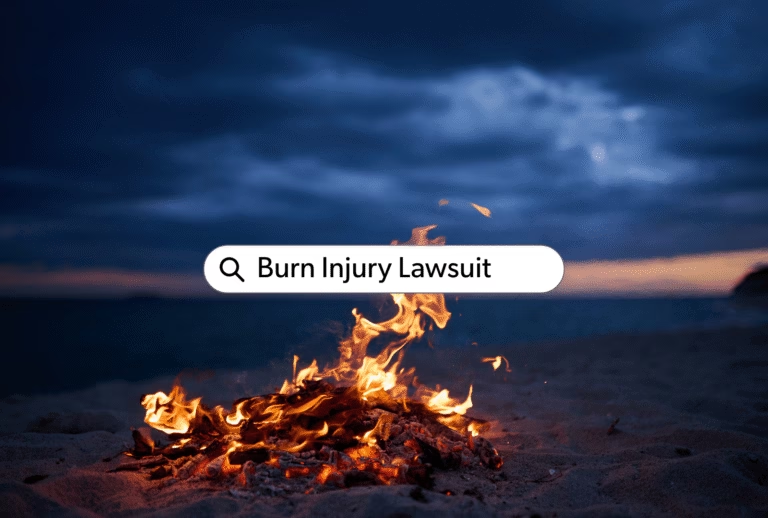A bodily injury claim allows an injured person to seek compensation after being hurt because of someone else’s negligence. Whether the harm comes from a car accident, slip and fall, or another incident, a personal injury claim for bodily injury can cover both medical expenses and other losses like pain, emotional distress, and lost income. To succeed, the injured party must show that another person was responsible for causing the harm and that real losses occurred as a result.
Anyone who’s been in an accident recently should talk to a law firm like Lawyers for Justice, P.C. Call (818) Justice for a free consultation.
What is a Bodily Injury Claim in Personal Injury?
A bodily injury claim is a legal claim filed by someone who has suffered physical or emotional harm due to another party’s negligence or wrongful actions. The goal of the claim is to recover financial compensation for medical bills, lost wages, pain and suffering, and other related losses.
Bodily injury claims most often arise from incidents like car accidents, workplace injuries, slip-and-fall accidents, or cases involving unsafe property conditions. In each situation, the injured person must prove that another party was at fault and the injury directly resulted from that person’s conduct.
Claims are typically handled through an insurance company, especially in auto accident cases, but they can also form the basis of a personal injury lawsuit if fair compensation isn’t offered. Whether resolved through settlement or court, a bodily injury claim ensures that the injured person is not left to bear the financial burden of someone else’s negligence.
Personal Injury vs Bodily Injury
Although the terms personal injury and bodily injury are often used interchangeably, they have distinct meanings in legal and insurance contexts.
Bodily injury specifically refers to physical harm to a person’s body, such as broken bones, bruises, burns, or internal injuries caused by another party’s negligence. Bodily injury is most often used in insurance policies and legal claims involving auto accidents or premises liability. A bodily injury claim focuses on recovering compensation for medical expenses, physical pain, and related costs that stem directly from the injury.
Personal injury, on the other hand, is a broader legal term. It covers not only physical injuries but also emotional distress, mental anguish, and harm to someone’s reputation due to an accident or wrongful conduct. Personal injury claims can include bodily injury, but they may also involve non-physical damages such as discrimination, defamation, or emotional trauma following an accident.
Bodily injury is about physical harm, while personal injury covers both physical and emotional losses. Understanding the difference between bodily injury and personal injury can help determine what type of claim or lawsuit is appropriate for a given situation, as well as what damages are awarded.
How a Personal Injury Lawyer Can Help With a Bodily Injury Claim
Handling a bodily injury claim can be overwhelming, especially when dealing with insurance companies, medical bills, and legal paperwork. A personal injury attorney can make the process smoother and ensure victims pursue the compensation to which they’re entitled.
A strong attorney begins by investigating the cause of the accident, and gathering evidence such as police reports, witness statements, and medical records to establish who was at fault. They also calculate the true value of the claim, which includes current and future medical expenses, lost income, pain and suffering, and other related damages.
A personal injury lawyer can also handle all negotiations with insurance companies, to make sure that lowball settlements don’t go unnoticed. If an agreement can’t be reached, the attorney can file a lawsuit and represent the injured party in court. Usually, victims are more likely to recover compensation if they have bodily injury insurance coverage.
Legal representation helps level the playing field. A powerhouse personal injury law firm like Lawyers for Justice, P.C. ensures victims get a fair chance at compensation. Call (818) JUSTICE for a free consultation.
Personal and Bodily Injury Claims – FAQ
is wrongful death considered bodily injury?
Wrongful death is related to bodily injury but is usually treated differently under the law. While a bodily injury claim focuses on the legal aspects of physical harm suffered by a living person, a wrongful death claim is brought by surviving family members for the loss of a loved one caused by another party’s negligence or misconduct.
In other words, bodily injury addresses harm to the victim, while wrongful death addresses the harm to the family resulting from that death. Both types of claims can overlap in serious accidents but are handled under separate legal procedures.
can i still file if i was partially at fault?
Yes, it’s often still possible to file a claim even if you were partially at fault. In many states, fault is divided between the parties involved, meaning compensation may be reduced based on the percentage of responsibility. For example, if another driver was mostly at fault, their bodily injury liability coverage may still pay for part of your damages.
do i need a lawyer for a bodily injury claim?
Hiring a lawyer for a bodily injury claim is highly recommended, especially when someone has suffered physical harm due to another person’s negligence. Insurance companies often try to minimize payouts, and without legal guidance, it can be difficult to recover the full amount of compensation deserved.
A personal injury lawyer can negotiate on your behalf, gather evidence, and ensure that medical expenses, lost wages, and pain and suffering are properly valued in your bodily injury settlement. Having legal representation can make the difference between a low offer and a fair recovery.
Last Updated on November 4, 2025



